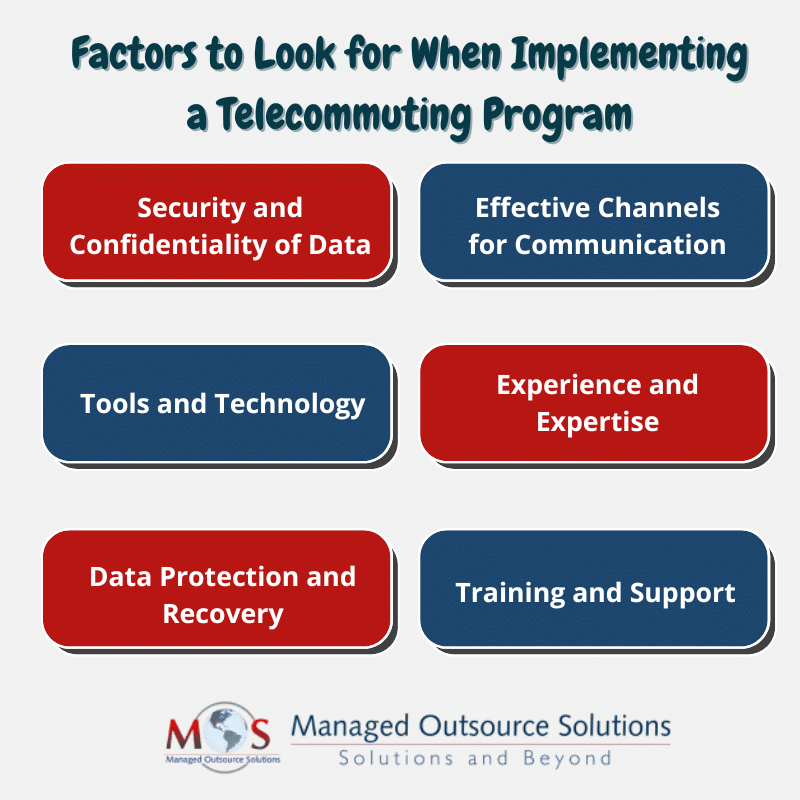The rise of telecommuting has transformed the traditional work environment, allowing employees to work from anywhere in the world, especially after Covid-19. This shift has brought numerous benefits, including increased flexibility, reduced commute times, and the ability to attract talent from a broader geographic area. However, it also presents unique challenges, particularly in managing and organizing data across remote teams. This is where data entry services come into play, offering essential support that can make telecommuting programs more efficient and effective.
Since data is used by all businesses, remote data entry is available in all sectors. Data entry specialists are needed in the finance industry to handle transactional data, invoices, and other accounting data. Together with billing and insurance information, the healthcare sector also maintains private patient data. The vast sector of online shopping handles enormous amounts of dynamic data, ranging from stock levels to customer profiles and financial activities. Several prominent businesses are hiring now or have employed remote data entry jobs in the past, including Amazon, Disney, FedEx, USPS, Blue Cross Blue Shield (BCBS), United Airlines, Marriot, CVS, Netflix, Macy’s, CIGNA, and Walmart.
What Factors to Consider
With employees working remotely, the need for accurate, efficient, and secure data management is more important than ever. When considering telecommuting data entry, several factors must be taken into account to ensure the process runs smoothly.
- Security and Confidentiality of Data: A primary concern is data security, particularly when staff members are working remotely. To avoid breaches or leaks, sensitive corporate data, customer information, and financial records must be managed with the highest care. Make sure that the company providing data input services uses robust authentication techniques, encrypted connections, and secure data transmission protocols. Depending on the type of data being processed, they need to also abide by applicable data protection laws like HIPAA and GDPR.
- Effective Channels for Communication: Successful remote data entry requires effective communication. Managers and team members must be able to communicate with remote workers swiftly and effectively. To keep everyone in the loop, set up effective means of communication including email, instant messaging, and video conferencing software. Regular updates and monitoring guarantee that any problems are resolved quickly and that the data entry procedure stays on schedule.
- Tools and Technology: For effective remote data entry, the appropriate equipment and technology are essential. Make sure your remote data entry workers have access to dependable PCs, fast internet, and the required software. Cloud-based data input systems can also improve teamwork and guarantee that data is available to all authorized staff members, wherever they may be. Verify that the technology being utilized supports secure data management and is compatible with the systems currently in place at your company.
- Experience and Expertise: Experience matters when it comes to telecommuting data entry. Look out for experts or services that have a solid experience in data entry and a comprehensive knowledge of your sector. Expert data entry service providers are more likely to be aware of the nuances of your industry and may provide insightful advice on how to boost the precision and effectiveness of your data management procedures. They should also be knowledgeable about the newest technology and data entry methods, guaranteeing that your data is treated as effectively as possible.
- Data Protection and Recovery: Data backup and recovery are crucial factors to take into account when working with data entry remotely since data loss can have disastrous effects on any kind of business. Make sure the company providing data entry services has a solid data backup strategy in place. They must have a defined procedure in place for data recovery in the event of data loss, as well as routine backups to safe servers that are both on- and off-site. You can reduce downtime and prevent losing important data by implementing a backup plan.
- Training and Support: The training and assistance that your data entry company offers should also be considered. Remote data entry employees should get thorough training on the particular data entry needs of your company in addition to continuing assistance with any problems that may come up. This assistance makes sure that any issues that may arise during the data entry process are promptly fixed. Furthermore, a provider is more likely to keep current with emerging technology and market trends if they make ongoing training investments for their staff.
Telecommuting data entry requires careful consideration of various factors to ensure success. By focusing on data accuracy, security, communication, technology, and compliance, you can create a robust remote data entry process that supports your business’s needs. Choosing the right data entry services provider is crucial to achieve these goals, ensuring that your data is handled efficiently and securely, no matter where your team is located.





